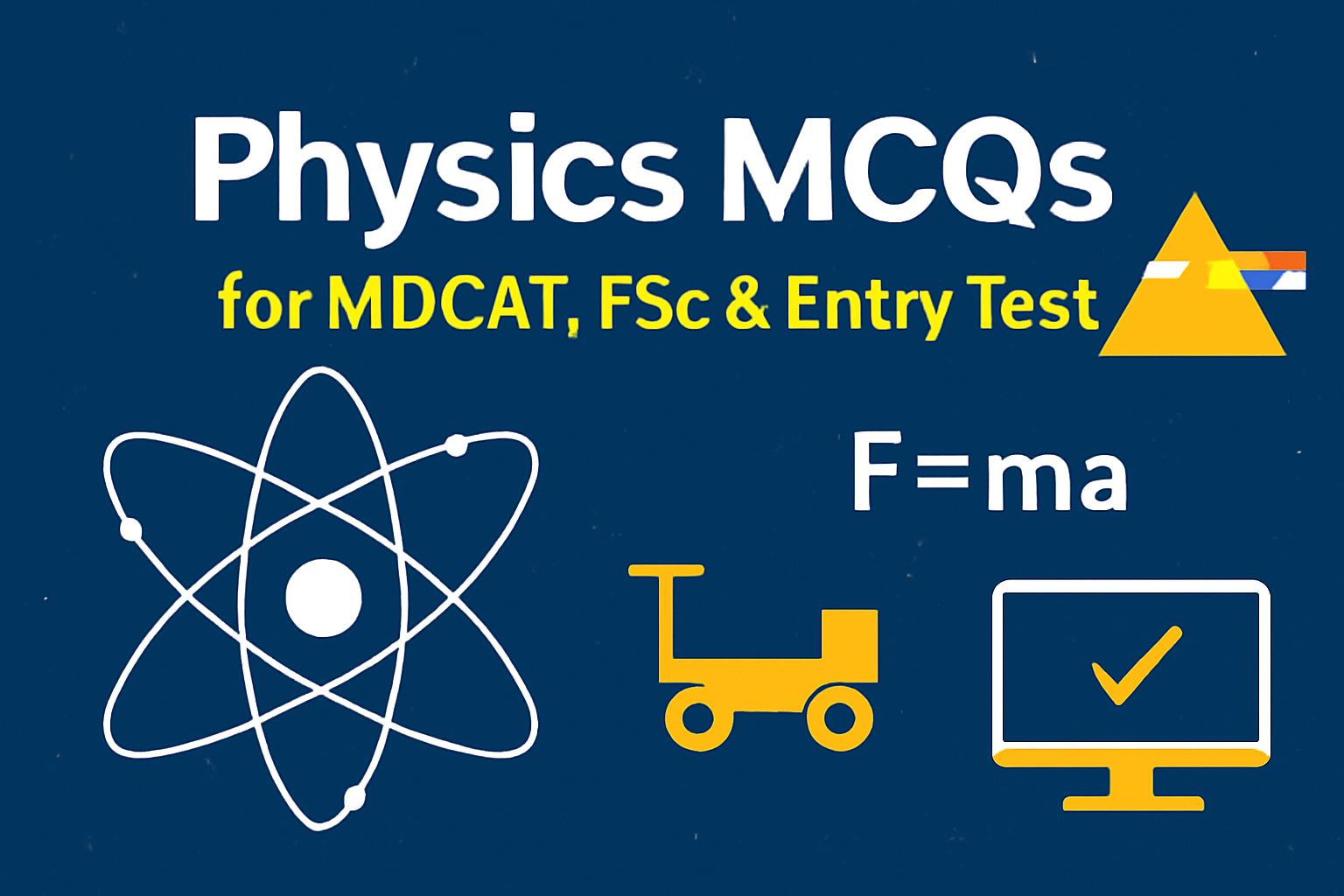
Physics
Work and Energy
Page 15 of 23
#113 A constant force $F=10\,\text{N}$ acts through $s=10\,\text{m}$ at $\theta=90^\circ$. The work done is:
A) $0$
B) $F+s$
C) $F/s$
D) $Fs$

#114 Dimensions of power are:
A) $ML^{2}T^{-2}$
B) $M^{0}L^{0}T^{-1}$
C) $ML^{2}T^{-3}$
D) $MLT^{-2}$

#115 A constant force $F=5\,\text{N}$ acts through $s=10\,\text{m}$ at $\theta=180^\circ$. The work done is:
A) $Fs$
B) $F+s$
C) $F/s$
D) $-50$

#116 The work–energy theorem for a particle of mass $m$ is:
A) $W_{\text{net}}=m\Delta v$
B) $W_{\text{net}}=\Delta p$
C) $W_{\text{net}}=\Delta K$
D) $W_{\text{net}}=\Delta U$

#117 Energy stored in a spring stretched by $x$ is:
A) $kx^2$
B) $\tfrac12 kx^2$
C) $k/x$
D) $kx$

#118 At the bottom of a frictionless track, potential energy is minimum and kinetic energy is:
A) maximum
B) undefined
C) minimum
D) zero

#119 At the bottom of a frictionless track, potential energy is minimum and kinetic energy is:
A) zero
B) undefined
C) maximum
D) minimum

Page 15 of 23










Register or Login for comments
Comments: